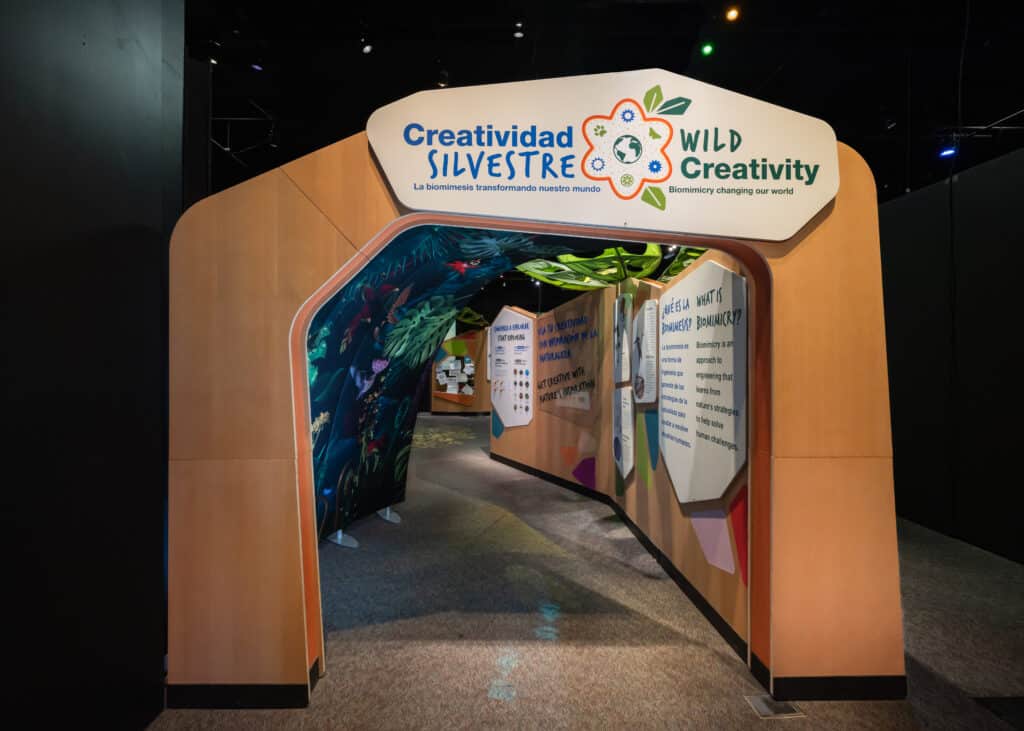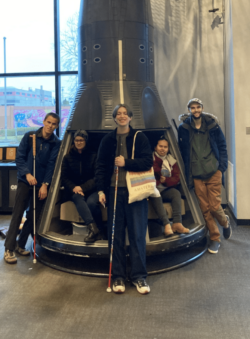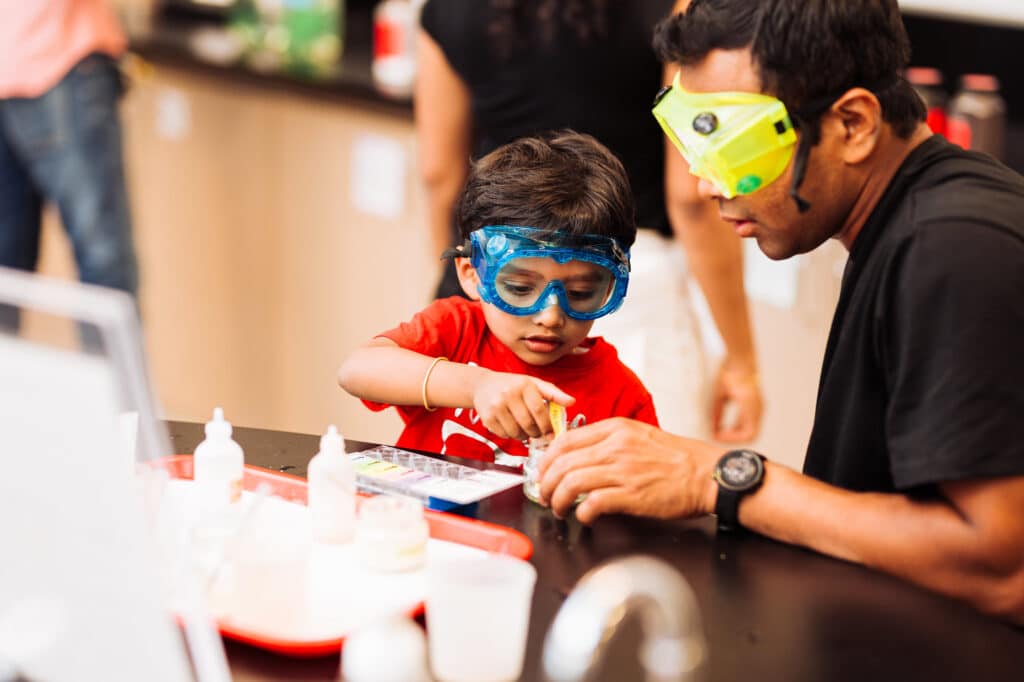An enhanced option for people with visual impairments
Museums are spaces for learning, for exploration and play. But a museum can also be a labyrinth of large, echoing spaces, bustling hallways, rooms filled with experiments, dark corners of exhibits that make signage difficult to read.
However, with innovations in technology have come new ways for people with visual impairments to have enriched and enhanced experiences with all that museums have to offer.

Creatividad silvestre | Wild Creativity
In 2021, the OMSI exhibits team was developing a new exhibit, Creatividad silvestre | Wild Creativity, a bilingual exhibition that encouraged visitors of all ages to explore fundamental concepts of biomimicry. As part of creating the exhibit, our researchers and designers looked for innovations to improve the accessibility of the experience. One of these innovations was Aira—recommended to OMSI by consultants from the Oregon Commission for the Blind.
Introducing Aira
Aira is a visual interpretation service that offers a technological solution to support individuals with visual impairments. Aira empowers users through a connection between a user’s smartphone and a remote human assistant who provides on-demand access to visual information. The service enables users to navigate their surroundings, explore new environments, and engage with various activities.
“I wouldn’t have been able to visit and explore the museum had it not been for Aira,” one user commented. “Navigating through the darker exhibit was beautiful. The agent was able to describe everything at length.”
Aira at OMSI
At OMSI’s Water Avenue location, guests can access Aira for free at any time, stretching from the public transportation MAX stop and parking lots to the inside of the museum. As long as they have a smartphone and the Aira app, visitors can video call Aira employees who will describe exhibits in rich detail, provide navigation assistance through crowded halls, read signage, and more.
“Users receive live descriptions, guidance, and assistance, enhancing their ability to participate fully in the exhibit and the world around them,” said Grant Crim, one of the OMSI staff members who led the research, implementation, and evaluation of Aira. “We’re thrilled because this is where OMSI seeks to bridge the gap of inequality, and with Aira, more OMSI visitors are empowered and able to independently explore the exhibit and museum.”

One visitor who used Aira at the museum shared,
“I was able to step back from playing the role of caregiver, and just be a mom.”
Another told us, “I’ve never been able to explain something to someone
I’m with, contributing to the conversation myself.”
Beyond the Museum
Since the beginning of 2024, OMSI has been able to offer Aira beyond the Water Ave campus. Both Camp Hancock and Camp Gray are now equipped with the service, broadening the accessibility of our programming throughout the state.
During the implementation of Aira, it has become clear, again and again, that accessibility goes beyond telling the community, “You are welcome here.” It goes beyond the bare minimum of ADA compliance. The feedback from guests who have used the service demonstrates what can happen when the museum is accessible for people: engagement, shared experiences, and joy. It gives all museum-goers the opportunity to be just that: one museum-goer among many, taking part in the learning, exploration, and fun that the museum provides.
The work of creating an accessible, welcoming, and usable museum for everyone is never done. OMSI’s commitment to inclusivity includes continually evaluating and updating our policies and practices to eliminate physical, sensory, structural, and institutional barriers to full participation. For more information about accessibility resources and amenities, or to provide feedback on how we can make the museum a more accessible space, please contact us at Info@OMSI.edu or (503) 797-4000.
